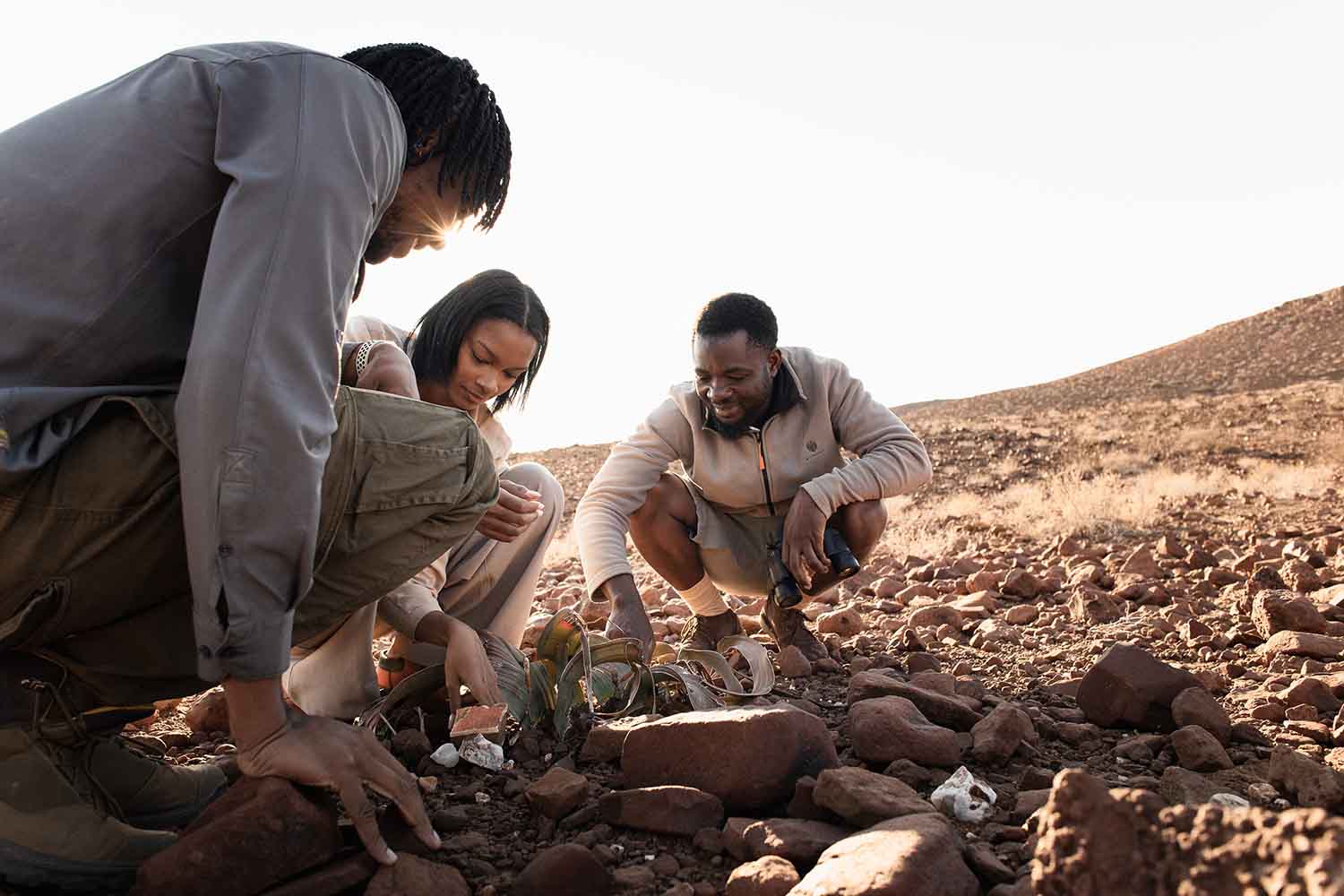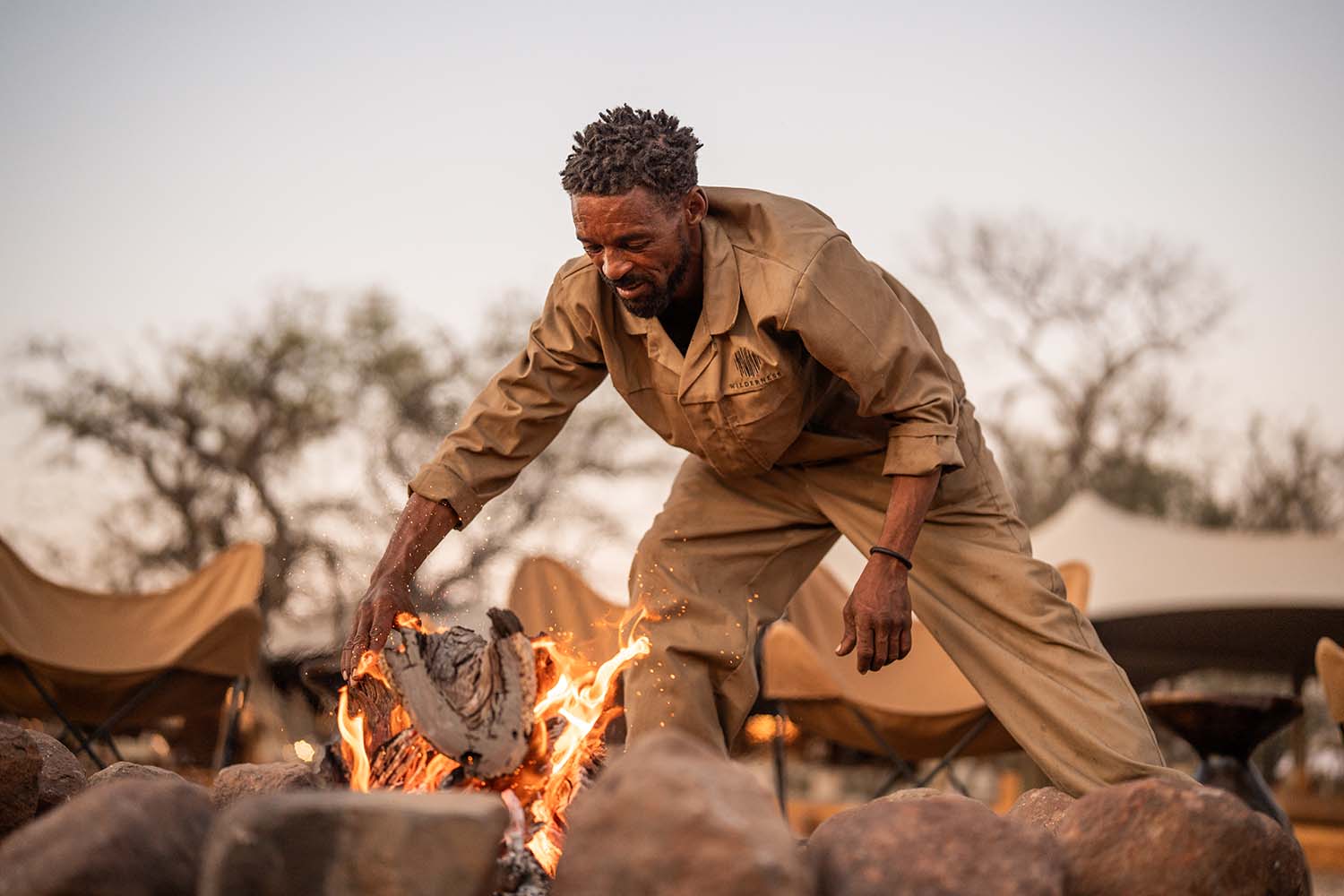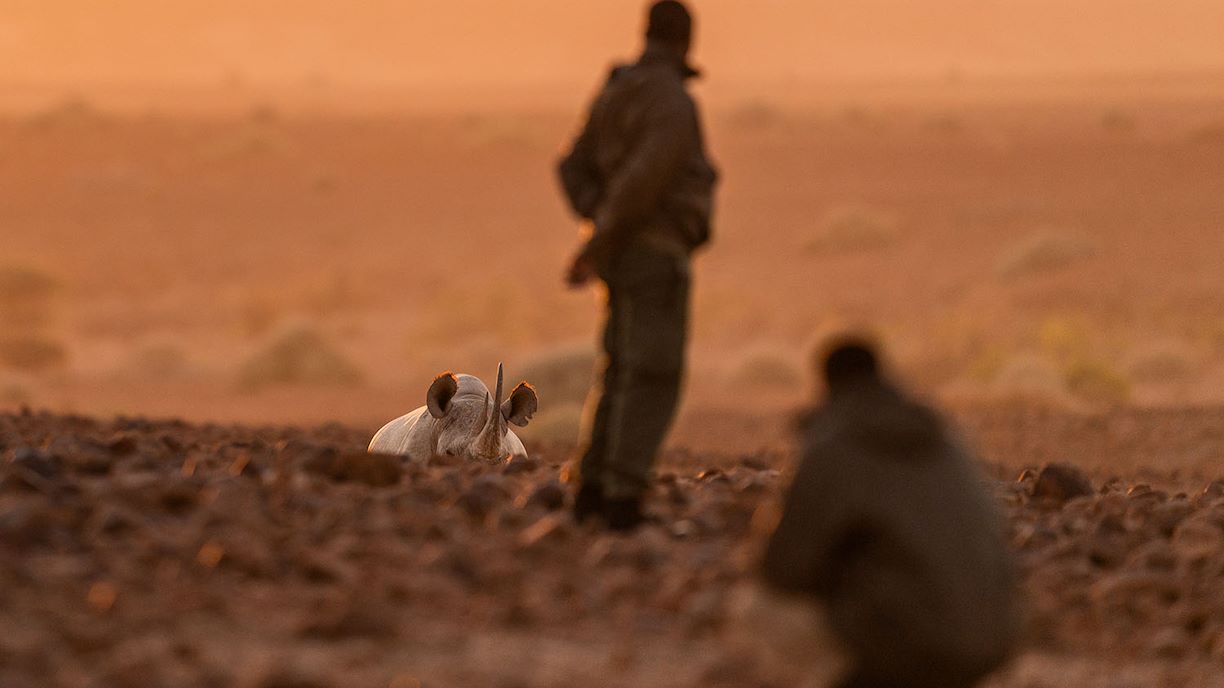“From humble beginnings 20 years ago as a rhino-research field station, we are proud to launch our newly rebuilt Desert Rhino Camp to further enhance our commitment to our partners, and drive conservation tourism to this remarkable region. Not only an exclusive desert sanctuary, the camp offers our guests the unique opportunity to track rhino on vehicle and foot with SRT Trackers and Conservancy Rhino Rangers. Their visit here makes a direct contribution to the protection of the endangered black rhino and ultimately helps us to ensure the long-term sustainability of our conservation coalition”, noted Alex Henderson, Wilderness Namibia MD.
As part of the lease agreement, Wilderness also provides financial remuneration and employment opportunities to the conservancies, positively uplifting the local communities. Approximately 11% of the total camp’s revenue is shared between the conservancies, SRT and rhino fundraising support. The camp is also a base for one of SRT’s skilled tracking teams, with their operational costs covered by Wilderness. SRT is responsible for leading all the Conservancy Rhino Ranger activities, while ensuring all data are collected, processed and secured.
“Our partnership has empowered SRT to successfully increase its rhino range by 20%, while consistently contributing to the largest, longest-running black rhino database in the world. The combined challenge we now face is increased poaching in the sub-region, making the success of our conservation tourism endeavours that much more critical for the long-term protection of the rhino”, Alex added.
In addition to rhino, the Palmwag Concession helps protect a large range of other fascinating desert-adapted species. Its freshwater springs add further diversity, with seasonal numbers of Hartmann's mountain zebra, southern giraffe, gemsbok (oryx), springbok, kudu and black-backed jackal, with cheetah and leopard sometimes sighted in this vast, unspoilt area. Fascinating reptile species, plant variety and diverse avifauna also add a different dimension to any stay here.

“This starkly beautiful landscape and the natural elements not only informed the design of the new camp, but we also incorporated the use of local stone into the construction, and utilised the skills of local builders. The camp is 100% solar powered from a 25kW system and generator back-up. We also re-used all the tents and materials from the old camp for our senior staff village in line with our commitment to building with a light footrprint”, said Alex.
With the scarcity of water in the desert, every effort is also made to conserve this precious resource by installing water-efficient devices in camp for both guests and staff. Water usage is carefully managed and monitored on a daily basis. In addition, Desert Rhino Camp uses a Natura three-stage advanced reverse osmosis filtration system to provide guests with chilled, high-quality still and sparkling drinking water.
This filter significantly reduces bottled water usage, as well as the indirect impacts associated with the production of conventional bottled water. It also forms part of Wilderness’ waste management programme that aims to completely eliminate the use of plastic in its camps, encouraging local and farm-to-table products, as well as more efficient packaging in the kitchens.
In extremely remote camps such as Desert Rhino Camp, this also ensures the reduction of fossil fuels by decreasing the frequency of food transportation to and from the camp. Like all Wilderness camps, Desert Rhino Camp is managed and monitored against very strict in-house environmental standards, so only approved eco-friendly detergents and chemicals are used to ensure they don’t negatively impact the environment and pollute the waste water, which goes back into the environment, fully remediated through a biological process. All laundry grey water is used to irrigate the trees growing around and within the camp.

“Minimising our footprint and maximising our conservation efforts form the cornerstone of Desert Rhino Camp’s impact ethos, and we are proud of our long history and ongoing efforts to preserve the biodiversity of the area. The camp is here to offer our guests a truly life-changing experience; one that helps us defend, preserve, and expand this iconic Namibian wild area for the resilient desert-adapted wildlife that survive against the odds. This camp, where it started, what it stands for, and our pioneering conservation, will continue to captivate and inspire all who are privileged to visit. We look forward to welcoming our guests to the reimagined camp soon”, Alex concluded.







